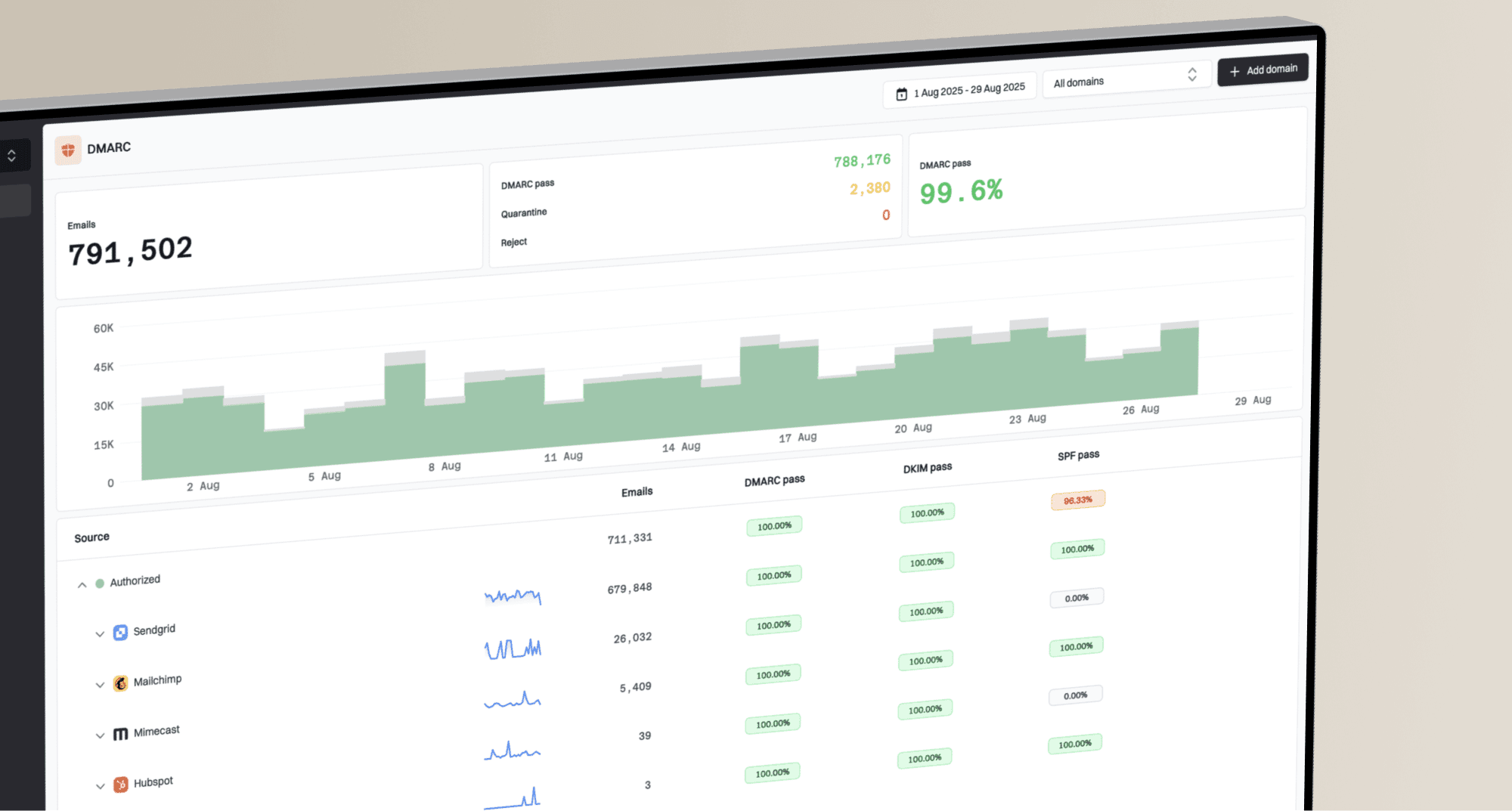Will Yahoo and Google require DMARC p=quarantine or p=reject in 2025?

Matthew Whittaker
Co-founder & CTO, Suped
Published 25 Apr 2025
Updated 5 Nov 2025
5 min read

 Google or
Google or  Yahoo specifically stating a p=quarantine or p=reject requirement for 2025, the industry consensus and subtle signals suggest that moving towards these stricter policies is highly recommended and, in many cases, implicitly expected for optimal deliverability.
Yahoo specifically stating a p=quarantine or p=reject requirement for 2025, the industry consensus and subtle signals suggest that moving towards these stricter policies is highly recommended and, in many cases, implicitly expected for optimal deliverability. Gmail and Yahoo Mail has been the presence of a valid DMARC record, even if it's set to p=none. This policy level instructs receiving mail servers to simply monitor emails that fail DMARC authentication without taking any specific action (like quarantining or rejecting them).
Gmail and Yahoo Mail has been the presence of a valid DMARC record, even if it's set to p=none. This policy level instructs receiving mail servers to simply monitor emails that fail DMARC authentication without taking any specific action (like quarantining or rejecting them)._dmarc.yourdomain.com IN TXT "v=DMARC1; p=none; rua=mailto:dmarcreports@yourdomain.com; ruf=mailto:dmarcfailures@yourdomain.com;"
 Microsoft may eventually push for stricter DMARC policies. The current p=none policy acts primarily as a monitoring mechanism and doesn't actively prevent fraudulent emails from reaching inboxes. To truly combat phishing and spoofing, stronger enforcement policies are necessary.
Microsoft may eventually push for stricter DMARC policies. The current p=none policy acts primarily as a monitoring mechanism and doesn't actively prevent fraudulent emails from reaching inboxes. To truly combat phishing and spoofing, stronger enforcement policies are necessary.
|
|
|
|---|---|---|
SPF | Authorizes sending IP addresses. | Checks if the sending IP is listed in your domain's SPF record. Essential for DMARC alignment. |
DKIM | Verifies email content integrity and sender identity through cryptographic signatures. | Checks if the signature matches the sending domain. Critical for DMARC alignment. |
DMARC | Provides policy instructions for unauthenticated emails and receives reports. | The p tag defines the action (none, quarantine, or reject) for failing emails. |
